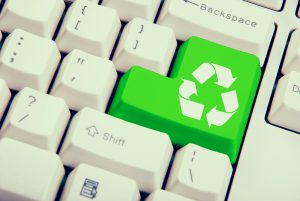Can we live without plastic?
Introduction
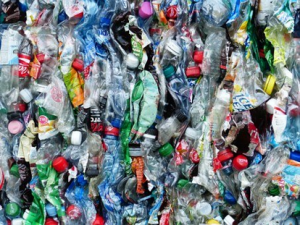 Plastic is one of the greatest inventions of our time, apart from Velcro. It is everywhere – water bottles, smartphones, laptops, food containers, shampoo bottles, disposable cutleries and the list go on. So, what’s the big deal? Well the big problem is that plastic is going nowhere. The water bottle you pick up at lunch could still be around for another 450 years! We can argue that most plastics are recyclable, but lots of recycling plants cannot keep up with the plastic waste we generate. An alarming fact is that 8 million pieces of plastic also enters our oceans every single year and eventually become 51 trillion pieces of microplastics that will poison the ocean wildlife which we continue to ingest.
Plastic is one of the greatest inventions of our time, apart from Velcro. It is everywhere – water bottles, smartphones, laptops, food containers, shampoo bottles, disposable cutleries and the list go on. So, what’s the big deal? Well the big problem is that plastic is going nowhere. The water bottle you pick up at lunch could still be around for another 450 years! We can argue that most plastics are recyclable, but lots of recycling plants cannot keep up with the plastic waste we generate. An alarming fact is that 8 million pieces of plastic also enters our oceans every single year and eventually become 51 trillion pieces of microplastics that will poison the ocean wildlife which we continue to ingest.
Want to change the world? Here are ten “easy to implement” suggestions (hmm… maybe not number #10) on how we can all play a part in reducing our dependence on plastic and be gentler to our environment.
Tip #1 – BYOB (Bring your own bottle!)
It is currently estimated that a million plastic bottles are bought around the world every minute. That translates to 525,600,000,000 plastic bottles bought every year. The solution is simple, get your own BPO free reusable bottle and fill it up with water from the tap. Perhaps, more cities should start having water fountains in order to make BYOB a way of life. If you live in a city, it’s time to talk to your mayor!
Tip #2 – Opt for the ice cream cone
 I am sometimes guilty of opting for the tub and plastic spoon to hold my scoops, instead of the cone. While some people may not like the cone, at least it’s biodegradable (Author’s note: Kinda strange if you don’t like the wafer, but I’m not judging here). It’s cone for my ice-creams from now on.
I am sometimes guilty of opting for the tub and plastic spoon to hold my scoops, instead of the cone. While some people may not like the cone, at least it’s biodegradable (Author’s note: Kinda strange if you don’t like the wafer, but I’m not judging here). It’s cone for my ice-creams from now on.
Tip #3 – Bring fabric bags for fruits and veggies
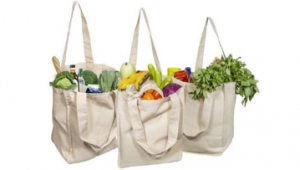 Don’t be easily tempted to use the plastic bags provided to bag up loose fruits and veggies. Instead, use a reusable fabric bag e.g. a cotton-tote bag like the one sold by Organic Cotton Mart (pictured here). Not only are these totes more durable than the plastic, they are also environmentally friendly. (For the record, the author does not have any stake in the Organic Cotton Mart business!).
Don’t be easily tempted to use the plastic bags provided to bag up loose fruits and veggies. Instead, use a reusable fabric bag e.g. a cotton-tote bag like the one sold by Organic Cotton Mart (pictured here). Not only are these totes more durable than the plastic, they are also environmentally friendly. (For the record, the author does not have any stake in the Organic Cotton Mart business!).
Tip #4 – Switch to loose tea
Did you know that some mainstream teabags use polypropylene – a type of plastic to seal the bags together? In fact, most ‘pillow’ and ‘pyramid’ style teabags rely on polypropylene fibres embedded in the outer layer to heat-seal the edges shut. Millions of teabags are home composted or put into food waste schemes. They end up in the soil, where the microscopic plastic fibres accumulate and pose a risk to wildlife. So, look for tea brands that don’t use polypropylene, or better still switch to loose tea.
Tip #5 – Pick loose fruits and veggies
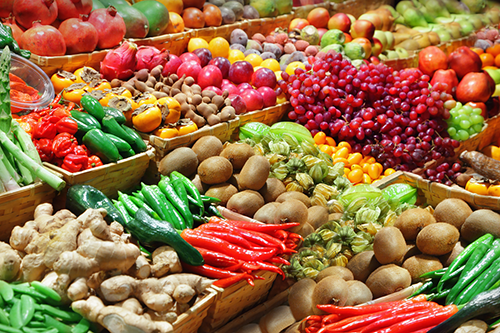
Fruits and vegetables already come in their natural packaging, which is bio-degradable or compostable. Unfortunately, the ongoing trend in supermarkets and grocery stores is to showcase fruits and vegetables in attractive packaging to draw consumers, all in the name of hygiene and convenience. Dr Lisa Wan, who studies consumer decision-making at the Chinese University of Hong Kong opined “consumers think that more packaging can protect the food from contamination”. Sadly, old habits die hard and only with continuous education and awareness will consumers become more cognizant of the environmental impact of plastic packaging when buying their greens.
Tip #6 – Cut your own fruit
More and more fruits such as melons, mangoes and pineapple are sold chopped up in plastic containers or packed in Styrofoam covered with plastic wrap. The knife is invented for a reason, so cut your own fruit for crying out loud! It is a no-brainer.
Tip #7 – Buy the can, shun the plastic bottle
Ideally, don’t buy the can or plastic bottle as they both use materials that drain on energy and natural resources. When push comes to shove, go for the can. Approximately 70% of cans are now made from recycled aluminium and even if they do end up in a landfill, they do not transfer nasty chemicals into the ground.
Tip #8 – Say NO to straws
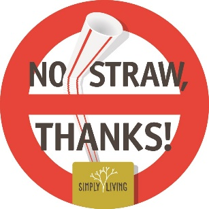 If you can drink beer without a straw, you can do the same with other beverages. According to ecocycle.org, Americans use 500 million straws daily, a quantity which could fill up 127 buses a day or 46,400 buses in a year! The question is – are plastic straws recyclable? The short answer is no – most plastic straws are too lightweight to make it through the mechanical recycling sorter. They drop through sorting screens and mix with other materials and are too small to separate, contaminating recycling loads or getting disposed as trash. Most of our straws ended up in our oceans and eventually become microplastics. I am not advocating a complete ban on straws –individuals who are physically challenged may need them. There are eco-friendly alternatives to plastic straws such as reusable stainless-steel straws, compostable plastic straws or bamboo straws.
If you can drink beer without a straw, you can do the same with other beverages. According to ecocycle.org, Americans use 500 million straws daily, a quantity which could fill up 127 buses a day or 46,400 buses in a year! The question is – are plastic straws recyclable? The short answer is no – most plastic straws are too lightweight to make it through the mechanical recycling sorter. They drop through sorting screens and mix with other materials and are too small to separate, contaminating recycling loads or getting disposed as trash. Most of our straws ended up in our oceans and eventually become microplastics. I am not advocating a complete ban on straws –individuals who are physically challenged may need them. There are eco-friendly alternatives to plastic straws such as reusable stainless-steel straws, compostable plastic straws or bamboo straws.
Tip #9 – Wise Wash
Most of us don’t realise that many of our clothes contain plastic and sometimes, microfibres from them can escape down the drain from our washing machines. One method to minimize microfibres from escaping is to always wash with a full load – it will create less space for friction between your wash items resulting in fewer fibres to be dislodged. Another method is to use a microfibre ball or bag (which may be purchased online) to collect these fibres and then pop them into the trash, before they end up in our water systems.
Tip #10 – Stop Smoking (including e-cigarettes)
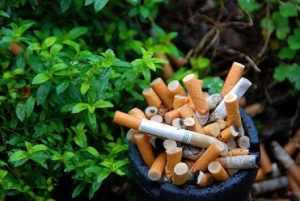 What have smoking got to do with plastic? From the environmental perspective, packs of your straight ciggies usually come wrapped in cellophane. For those who prefer loose tobacco, they are usually packed in a plastic pouch. But what most of us don’t realise is that the filters used in cigarettes are mostly made from a type of plastic! Estimates suggest that 4.5 trillion cigarette butts are disposed of annually, of which 50% of them end up in landfills and the other half end up everywhere else such as in our oceans and beaches where birds and fishes mistake them for food. JULL, the top selling e-cigarette brand, uses single-use plastic pods that often ended up in the trash or on the sidewalk. Have you seen any initiative to recycle cigarette butts or JUUL pods? The only way to deal with this problem is to stop smoking, e-cigarettes included!
What have smoking got to do with plastic? From the environmental perspective, packs of your straight ciggies usually come wrapped in cellophane. For those who prefer loose tobacco, they are usually packed in a plastic pouch. But what most of us don’t realise is that the filters used in cigarettes are mostly made from a type of plastic! Estimates suggest that 4.5 trillion cigarette butts are disposed of annually, of which 50% of them end up in landfills and the other half end up everywhere else such as in our oceans and beaches where birds and fishes mistake them for food. JULL, the top selling e-cigarette brand, uses single-use plastic pods that often ended up in the trash or on the sidewalk. Have you seen any initiative to recycle cigarette butts or JUUL pods? The only way to deal with this problem is to stop smoking, e-cigarettes included!
Takeway!
We should not demonize plastic. It is a fantastic el cheapo invention which can be found in various products such as syringes, protective helmets, laptops etc. An old Chinese proverb once said that “A journey of a thousand miles begins with a single step”. The same goes with responsible plastic usage- it is not too late to save our planet, but the time for every individual to take that proverbial first step is now!
Connect with us here (www.clickandconnect.co) and find out how we can help you address the exciting, but very challenging environment we operate in today!
References
- “F**K Plastic – 101 ways to free yourself from plastic and save the world”, Rodale Books @2018 by The Orion Publishing Group Ltd
- “Eight Million Tonnes of Plastic are Going into the Ocean Each year”, iflscience.com
- “Turn the tide on plastic urges UN” – https://news.un.org
- “Is there plastic in my tea?” , https://www.ethicalconsumer.org/food-drink/there-plastic-my-tea
- “Hong Kong’s over packaging problem: Supermarkets are not the only ones who need to change” – Hong Kong Free Press, https://www.hongkongfp.com/2017/02/25/hong-kongs-over-packaging-problem-supermarkets-are-not-the-only-ones-who-need-to-change/
- “Smoking Environmental Risks” – Tobacco Free Life, https://tobaccofreelife.org/why-quit-smoking/smoking-effects/smoking-environmental-risks/
- “3 ways JUUL harms the environment” – Truth Initiative, https://truthinitiative.org/research-resources/emerging-tobacco-products/3-ways-juul-harms-environment


